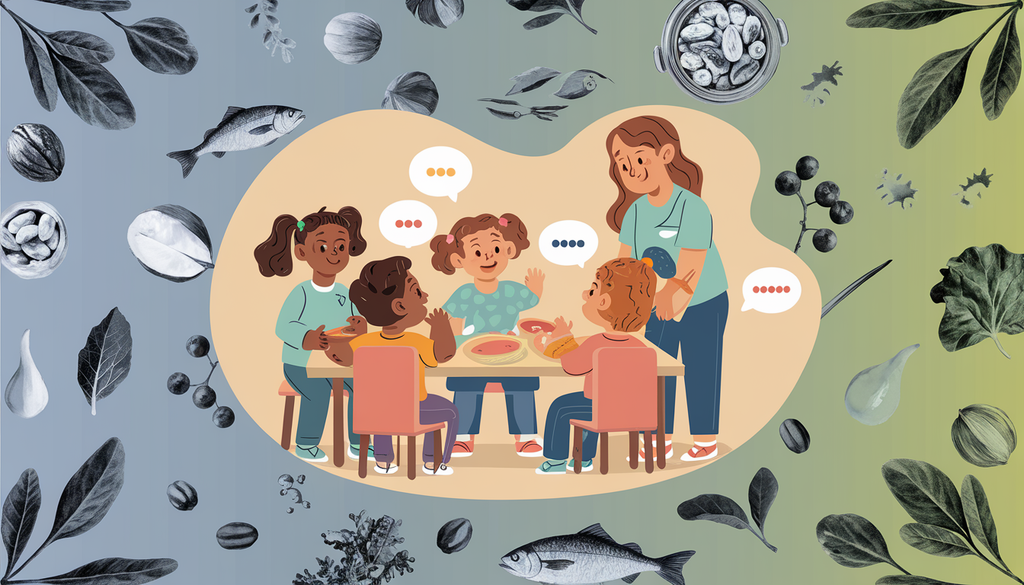
Effective communication skills are essential for children as they understand and interact with their surroundings. These skills are not just about talking; they are important for a child's growth and social skills. From expressing needs and emotions to building friendships, effective communication skills are key to many parts of a child's life.
Improving communication skills in children can significantly enhance their ability to engage with others and understand the world. This article will explore what makes communication effective, look at the parts involved, and provide practical techniques to help children improve these skills. We'll also touch on the importance of active listening and how technology and social interactions can be used to improve communication skills.
Understanding Effective Communication Skills
Effective communication skills involve more than just speaking clearly. They include different skills that help send clear messages and understand others. These skills can be divided into three main parts:
- Verbal Communication: This includes the words we choose and how we use them. It's about expressing thoughts and emotions clearly and appropriately.
- Non-Verbal Communication: Body language, facial expressions, gestures, and eye contact all play a role in communication. Non-verbal communication skills often complement verbal communication, adding depth and meaning to our words. For more on this, visit Body Language and Nonverbal Communication.
- Listening: Listening is a vital part of communication. It involves not just hearing the words but understanding the message behind them.
By understanding these components, parents and caregivers can better support their children in developing great communication skills. Encouraging children to be mindful of both verbal and non-verbal cues can significantly enhance their interactions with others.
Techniques to Improve Communication Skills
Helping children learn good communication skills is important for their growth and social skills. Here are some practical communication techniques to improve these skills:
- Role-Playing: Create scenarios where children can practice different communication roles. This helps them understand perspectives and express themselves better.
- Storytelling: Encourage children to tell stories. This activity boosts their verbal skills and helps them organize thoughts clearly.
- Games: Engage in games that require interaction, such as charades or board games. These games promote both verbal and non-verbal communication.
- Routine Conversations: Make time for daily conversations. Discuss their day, interests, or any topic they like, fostering an environment where they feel comfortable expressing themselves.
- Open-Ended Questions: Ask questions that require more than yes or no answers. This encourages children to elaborate and think critically.
The Role of Active Listening in Good Communication Skills
Active listening is a cornerstone of good communication skills. It involves fully concentrating, understanding, and responding thoughtfully to what is being said. Here's why it's important and how you can encourage it in children:
- Understanding Active Listening: It's more than just hearing words; it's about understanding the message and providing feedback.
- Significance: Active listening helps children build empathy, improve comprehension, and engage more effectively in conversations.
-
Tips for Fostering Active Listening:
- Maintain eye contact to show attentiveness.
- Encourage children to ask questions if they don't understand something.
- Teach them to summarize what they've heard to ensure comprehension.
- Use positive body language to convey interest.
For more detailed techniques, you can explore these 7 Active Listening Techniques For Better Communication.
Leveraging Technology and Social Interaction to Enhance Communication Skills
In today's digital age, technology can play a significant role in helping children improve their communication skills. Digital tools and platforms offer interactive and engaging ways to practice communication. Here's how technology can be beneficial:
- Interactive Apps: Many apps are designed to enhance language skills through fun activities and games, making learning enjoyable for children.
- Video Calls: Platforms like Zoom or Skype allow children to communicate with family and friends, helping them practice verbal and non-verbal communication.
- Educational Videos: Watching videos that demonstrate effective communication can offer practical examples for children to emulate.
While technology offers valuable resources, it's crucial to maintain a balance between digital and traditional communication methods. Encouraging face-to-face interactions is equally important for developing good communication skills. Group activities and peer interactions provide children with opportunities to practice speaking, active listening, and interpreting body language.
Parents can facilitate these social opportunities by:
- Organizing Playdates: These allow children to interact with peers in a relaxed setting, fostering social skills.
- Enrolling in Group Activities: Activities like sports, drama clubs, or book reading groups can enhance communication skills through teamwork and collaboration.
- Participating in Community Events: These events can help children learn to communicate in diverse social settings.
The evolution of communication practices, influenced by technology, is discussed in more detail in this article. It's essential to embrace both traditional and modern methods to support a child's communication development effectively.
Summary and Call to Action
Developing effective communication skills in children is vital for their social and emotional growth. By utilizing the techniques and insights discussed, parents can significantly enhance their child's ability to communicate effectively. From leveraging technology to encouraging social interactions, each method plays a part in fostering these essential skills.
At Simple Spectrum, we are committed to supporting your child's overall wellness and brain development. Explore our resources and products, such as our Nutritional Support Supplement and Omega 3 DHA Supplement, designed to complement your child's growth journey. Together, let's build a foundation for great communication skills and a brighter future.
